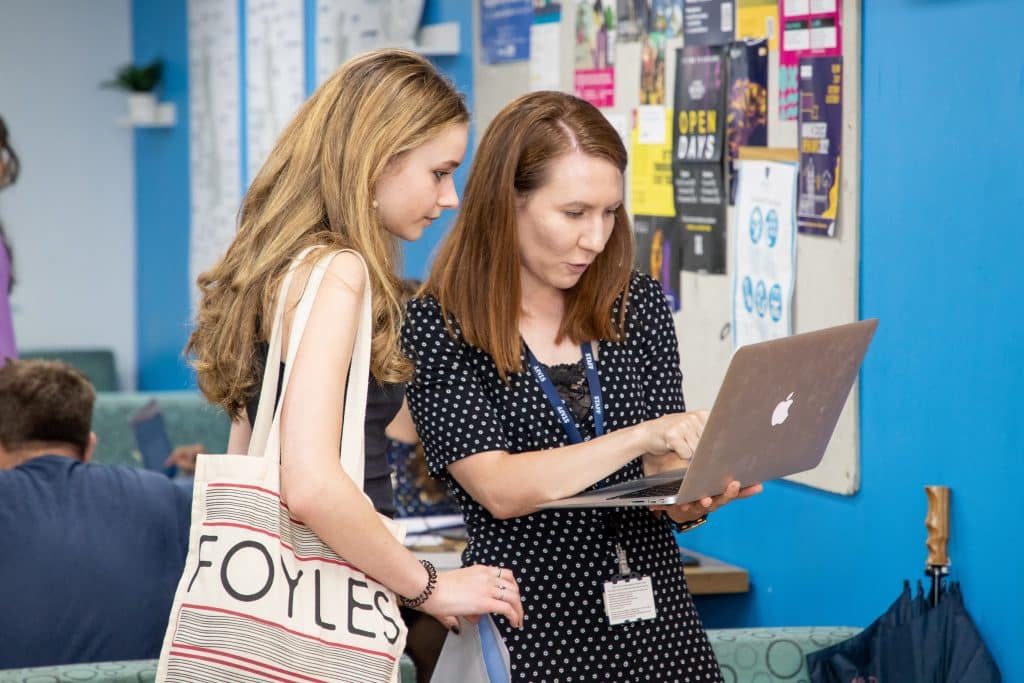HPQ and EPQ at Forest School
Head of Department: Ms E Newman een@forest.org.uk
he Higher Project Qualification (HPQ) is completed by all students in Year 10 and Year 11 at Forest, and the Extended Project Qualification (EPQ) is completed by all students in Year 12 at Forest.
Both qualifications provide a unique opportunity for students to choose a subject area based upon their own intellectual curiosity and complete extended independent research within their chosen specialism.
Students can choose to produce an entirely written project, in the form an extended academic essay/ dissertation, or they may decide to use their research to develop an artefact or put on a performance.
Both qualifications develop independent learning, research, writing, analytical and presentation skills, and so form a complementary study alongside the GCSE and A Level courses.
Our rich learning opportunities include:
In the Higher Project Qualification (GCSE)
- Whole year assembly to showcase outstanding projects from students who completed their projects the year before
- Weekly teacher surgeries/clinics to support student progress
- Tutor time sessions in which students can learn about the HPQ by discussing the project process and topics with pupils in the year above.
In the Extended Project Qualification (A Level), our enriched learning opportunities can include:
- A Look Out Lecture to showcase outstanding projects from our current Year 13 students who completed their projects the year before
- Completion of an online course run by the University of Bath, focusing on ‘The Nuts and Bolts of Completing Your Project’
- Weekly teacher surgeries/clinics to support student progress
- Taster day sessions in Year 11 to learn about the project and start thinking about potential topics over the summer break
GCSE and A-level Overview
Completing the HPQ and the EPQ enables students:
- Identify, design and complete an individual project, applying a range of organisational skills and strategies to meet agreed objectives.
- Obtain, critically select and use information from a range of sources. Analyse data, apply it relevantly and demonstrate understanding of any appropriate linkages, connections and complexities of the topic.
- Select and use a range of skills, solve problems, take decisions critically, creatively and flexibly, to achieve planned outcomes.
- Evaluate outcomes both in relation to agreed objectives and own learning and performance.
- Select and use a range of communication skills and media to present evidenced outcomes and conclusions in appropriate formats.
HPQ counts for half a GCSE:
- It allows students to learn more about a topic of personal interest
- Take responsibility for their own learning
- Discover the joys of independent project work.
Past topics of study for HPQ:
- To what extent can physical and non-physical interventions help to improve the lives of teenagers with cerebral palsy?
- Do the conservational benefits of zoos justify keeping animals in captivity?
- What was the most damaging impact of the transatlantic slave trade on West Africa?
- To what extent does air quality affect Londoners’ health and what are the most effective future solutions to this problem?
- How can I compose a piece for solo violin in the style of the Romantic era? (performance – musical composition)
EPQ counts for half an A Level:
- It builds on the skills developed in the HPQ.
- Many universities, including some Russell Group universities, give alternative offers to students who complete the EPQ (such as A Level grades of ABB being required instead of AAB, for students with an A grade for the EPQ).
Past topics of study for EPQ:
- Can it be argued that play with Lego has a positive impact on intelligence, and can I support this argument with an appropriate psychological investigation?
- Does the study of or participation in the arts aid medical students to develop skills beneficial to their careers as medical practitioners?
- Mitigation and adaptation: a critical analysis of climate change management in nations at differing levels of development.
- To what extent was the thirteenth amendment the most significant cause of the mass incarceration of African Americans in America from 1865 to present day?
- ‘Setting the stage for the new Deaton Theatre’. (Artefact: redesign of the Deaton Theatre)
Assessment at GCSE and A-level
There are three main areas of assessment for the HPQ and the EPQ:
- The Production Log documents
- Planning
- Progress of the project
- Including discussion of decisions made along the way and reflections by the student on the process.
It is completed through a specialised website called Project Q https://my.projectq.co/
The Presentation is completed in class in front of peers and teacher and details the process and findings of the project.
A question and answer session is also included.
The Project Product is the final, completed project outcome. This may come in the form of a written report or artefact.
- For the HPQ, the report must be approximately 2500 words
- For the EPQ, the report must be approximately 5000 words.
If a student chooses to complete an artefact, they must also write a research based report of a minimum of 1000 words, detailing the research and the stages of the artefact’s development.
Curriculum Maps – All Years
Many of our students choose to investigate topics which are at the forefront of new research, learning more about current and topical issues such as climate change, stem cell research, artificial intelligence and prison reform. These ideas change the individual student’s perspective and knowledge, and are also shared with the other students in the class through the final Project Presentation.


